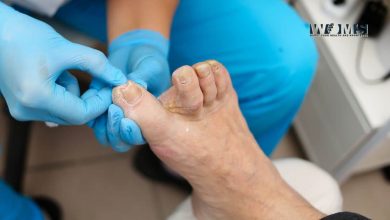Everything you Need to Know about Bloodborne Pathogens Certification

Occupational safety is one of the most serious topics in the workforce. The reason it’s so important is that no matter how many regulations are put in place, over 5,250 workers die from work-related injuries in the US every year.
While we can’t stop every accident from happening, we can minimize our risks. Here’s what you need to know about workplace safety and bloodborne pathogens training certification.
What is Workplace Safety and Bloodborne Pathogens Certification?
If you’re looking to prevent accidents and infections in the workplace, it all starts with the proper knowledge. Let’s do a quick breakdown of what you’ll learn from these training to see if they’re right for you.
Workplace Safety Certification
The best way to prevent serious injury or exposure to bloodborne illness is by preventing the accidents that lead to them. Taking this training in any profession is a good idea but it’s critical for those at high risk.
If you work in a warehouse setting, around heavy machinery, in a factory, around ladders, or with any equipment that could lead to an injury if it is not used properly, this is the training for you.
Bloodborne Pathogens Training
Worldwide, there are over 160 million people who get a work-related illness every year, and that’s pre-Covid. One of the greatest threats to any individual working in high-risk industries is bloodborne illnesses.
Nobody can prevent blood from escaping somebody’s body or posing any type of risk to you but with the proper training, you can learn how to minimize your risk of exposure and prevent serious diseases from infecting you or others.
This training is especially important for those at high risk of accidental needlesticks, working around heavy equipment, or even working around children. Any profession where exposure to somebody else’s blood puts you at high risk.
Every time that you see blood, you should treat it as if it is infected with serious illnesses like HIV, Hepatitis, and others. This training will teach you how to properly handle these situations, dispose of equipment, and disinfect the area. That way, if any serious illnesses are present, the risk of infection is minimized.
Who Needs This Training?
Any healthcare professional is the first to come to mind for bloodborne pathogens training. Healthcare professionals of all kinds are the most likely to be exposed to blood, used needles, and other risks. Anybody who works or volunteers in a hospital, medical facility, or addiction center should receive this training to learn proper care for needles.
If you work around any sharp objects or machinery, accidents happen. It’s always best to be prepared. If you work with children, you know how frequently accidents happen, and many results in blood. Taking the proper precautions for exposure includes the proper training.
How Do I Sign Up?
Now that you know a little about workplace safety and bloodborne pathogens certification, you may be wondering how to enroll. It’s simple. Get yourself and your team educated on these serious topics today and check out these courses to see which is best for your line of work.




